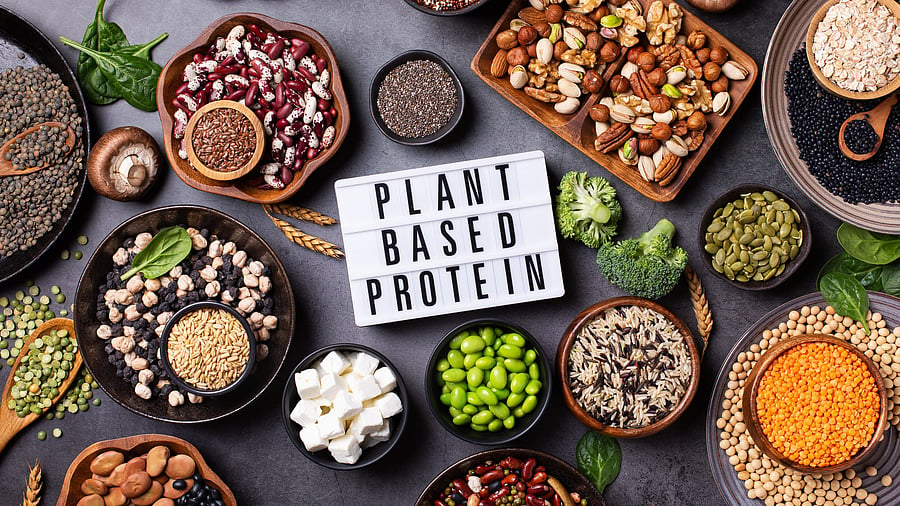
Representative image showing foods containing plant-based protein.
Credit: iStock Photo
Mumbai: As India is facing an alarming rise in Metabolic Dysfunction-Associated Steatotic Liver Disease (MASLD) and Type-2 Diabetes (T2D), plant proteins have been recommended for liver health.
MASLD now affects 27.4 per cent of the Indian population and more than 77 million individuals have diabetes.
The twin epidemics often coexist, compounding health risks such as heart disease, kidney disease, liver cancer, and stroke.
Recognising the urgent need for intervention, a panel of experts has released new guidelines specifically for screening and treating Asian, Indian patients managing both conditions. The guidelines recommend some key dietary and lifestyle modifications, like limiting saturated fats, including ghee, coconut oil, and butter, which are often mistakenly considered healthy.
Consuming too much of these fats promotes liver fat build-up and chronic inflammation, raising the risk of several chronic diseases that Asians are particularly prone to.
Published in the journal Diabetes and Metabolic Syndrome: Clinical Research and Reviews by Elsevier, the guidelines highlight the powerful role of plant-based diets in improving metabolic health. They highlight the importance of adequate protein intake, particularly from plant-based sources like legumes, nuts, and seeds.
"Insulin resistance, overweight, and obesity are key drivers behind both Type 2 Diabetes and MASLD," said Dr. Zeeshan Ali, MD, PhD, Nutrition Expert and Research Program Specialist at the Physicians Committee for Responsible Medicine (PCRM).
"Research shows that a whole-food plant-based diet can reduce the underlying causes of T2D—excess fat accumulation inside cells, insulin resistance, and chronic inflammation. This approach not only supports blood glucose control but also reduces liver fat, promoting better overall metabolic health," said Dr Ali, who is based in Washington DC.
Plant-based diets have gained traction as an effective strategy for preventing and managing diabetes, with series showing more than 30 per cent reduction in liver fat within weeks of dietary change, according to a press statement.
A randomised trial also found that 43 per cent of participants following a low-fat, plant-based diet were able to reduce their diabetes medications compared to just 26 per cent in the conventional diet group.
The new guidelines echo the growing evidence, calling for diets high in complex carbohydrates, plant-based proteins, and healthy fats, along with regular physical activity and the elimination of alcohol.
For millions of Indian patients battling diabetes and liver disease, a shift toward plant-based nutrition offers a powerful, accessible tool for reclaiming health—one plate at a time.